If You Remember These 14 Useless Skills, You’re Officially Old (and Awesome)
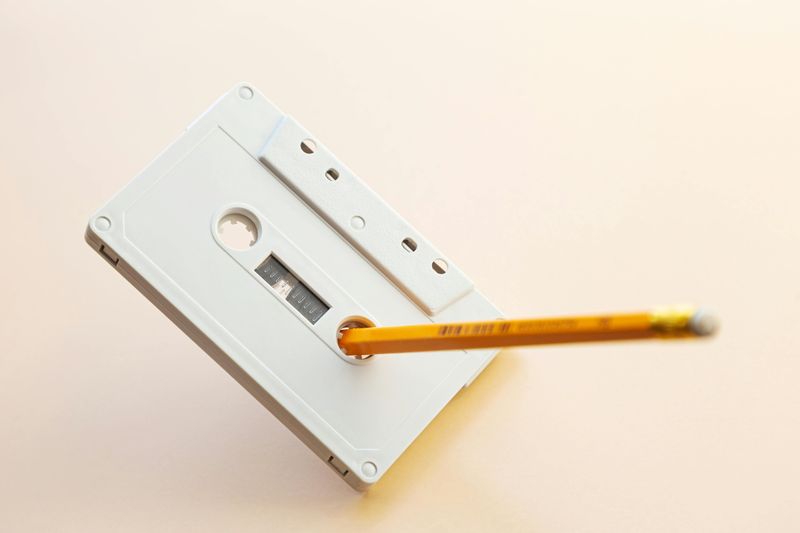
Admit it—you’ve still got some legendary life hacks that modern gadgets quietly retired. These aren’t just skills; they’re artifacts from a time when patience, precision, and a little luck ruled the day.
If you’ve ever prayed to the tech gods while jabbing a “record” button, you’re among the elite. Lean in and grin: these 15 throwback talents prove you’re seasoned, savvy, and still awesome.
1. Burning Music onto CDs
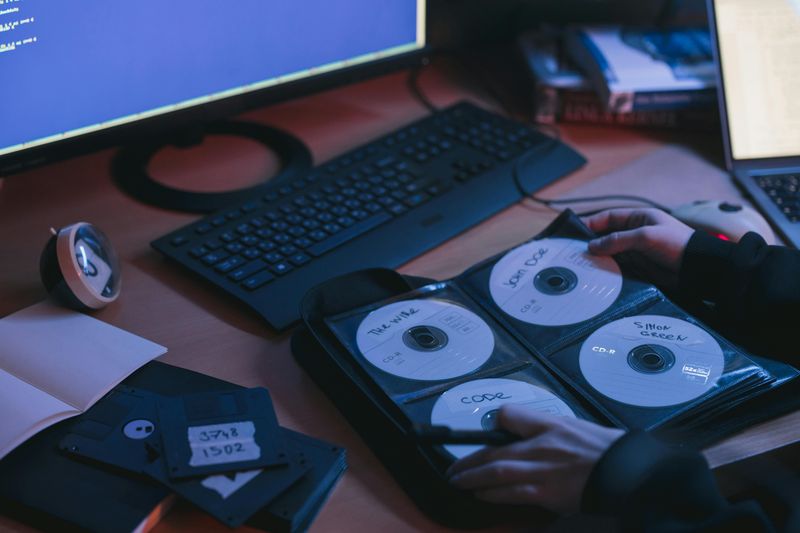
Nothing matched the ritual of building the perfect disc for a long drive. You’d agonize over track order, balancing bangers and ballads like a tiny stadium DJ. Then came naming the creation: ROAD TRIP 2002 in blocky Sharpie, possibly with flames doodled around it.
Burn speed was a gamble; too fast, and the mix might skip during your favorite chorus. You hovered over the drive tray like a baker watching cookies. When it finished, you popped it into the car stereo for a tense test spin.
Every successful burn felt like winning a Grammy you awarded yourself. You knew which brands of blank CD actually worked and which were coasters in disguise. And if the disc betrayed you mid-chorus, you kept a backup under the visor. Preparedness was half the vibe—and full-on playlist pride.
2. Rewinding VHS Tapes
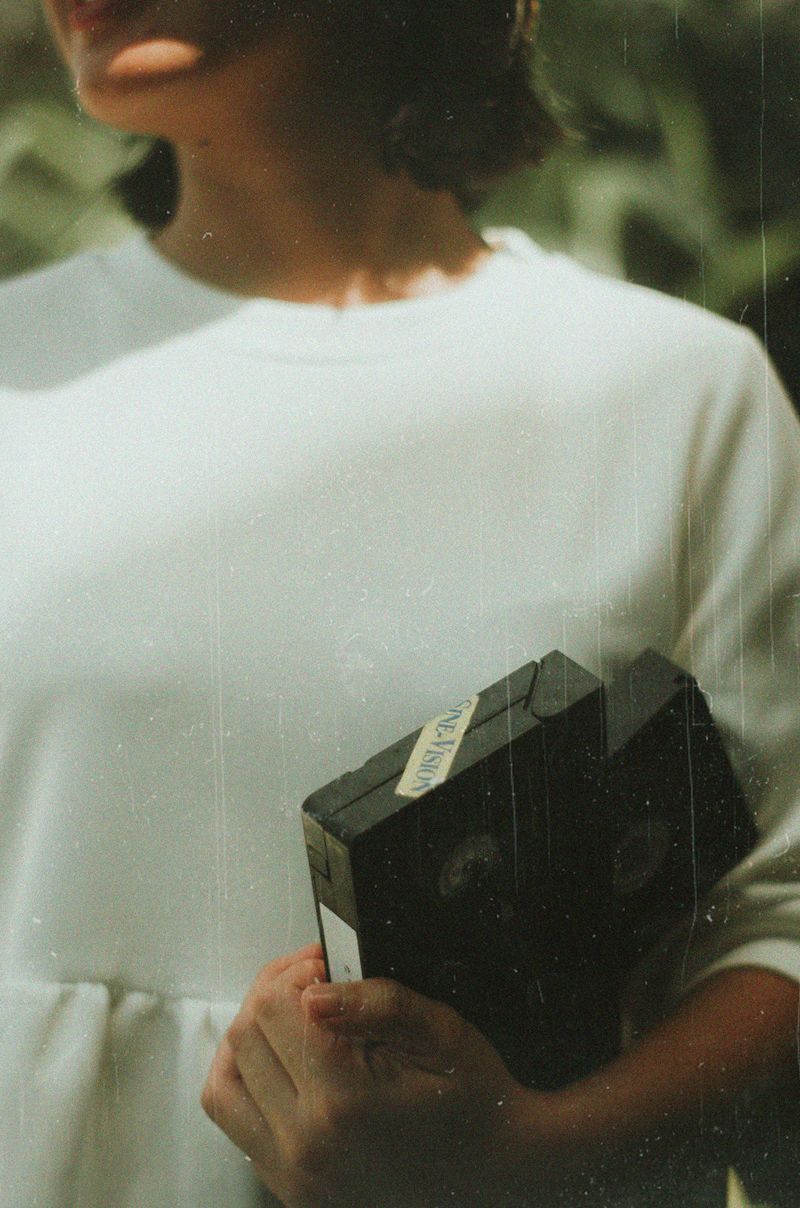
There was honor in returning a tape fully rewound, like leaving a campsite cleaner than you found it. You listened for that comforting whirr, followed by a soft clunk when it reached the start. If you were fancy, you had a separate rewinder shaped like a sports car.
“Be Kind, Rewind” wasn’t just a sticker—it was a binding social contract with your local video store. Forgetting to rewind invited passive-aggressive fees and the clerk’s disappointed nod. That split-second of tracking fuzz felt like the film clearing its throat.
Saturday nights involved popcorn, a couch groove, and adjusting the tracking to chase away horizontal snow. If the tape snagged, your heart stopped until it released. You knew to hold the tape by the edges, never the film. And you learned patience, one whirring rewind at a time.
3. Using T9 Texting

Thumb choreography reached its peak on those old numeric keypads. You learned the rhythm of 4663 becoming “good,” and how to outmaneuver T9 when it insisted on “home” instead of “gone.” Predictive text felt psychic when it worked and deeply chaotic when it didn’t.
Composing full sentences without glancing at the screen became a party trick. Speed came from timing, not swipes, and your brain mapped words to numbers subconsciously. You could text under a desk, on a bus, or in the dark like a stealth poet.
Deleting a letter meant tapping with surgical accuracy, and adding punctuation required superhero patience. Still, those clacky buttons felt satisfying, each click a micro-celebration. Modern keyboards are efficient, but they’ll never replicate that percussive rhythm—or the thrill of nailing a perfect message on the first try.
4. Balancing a Checkbook
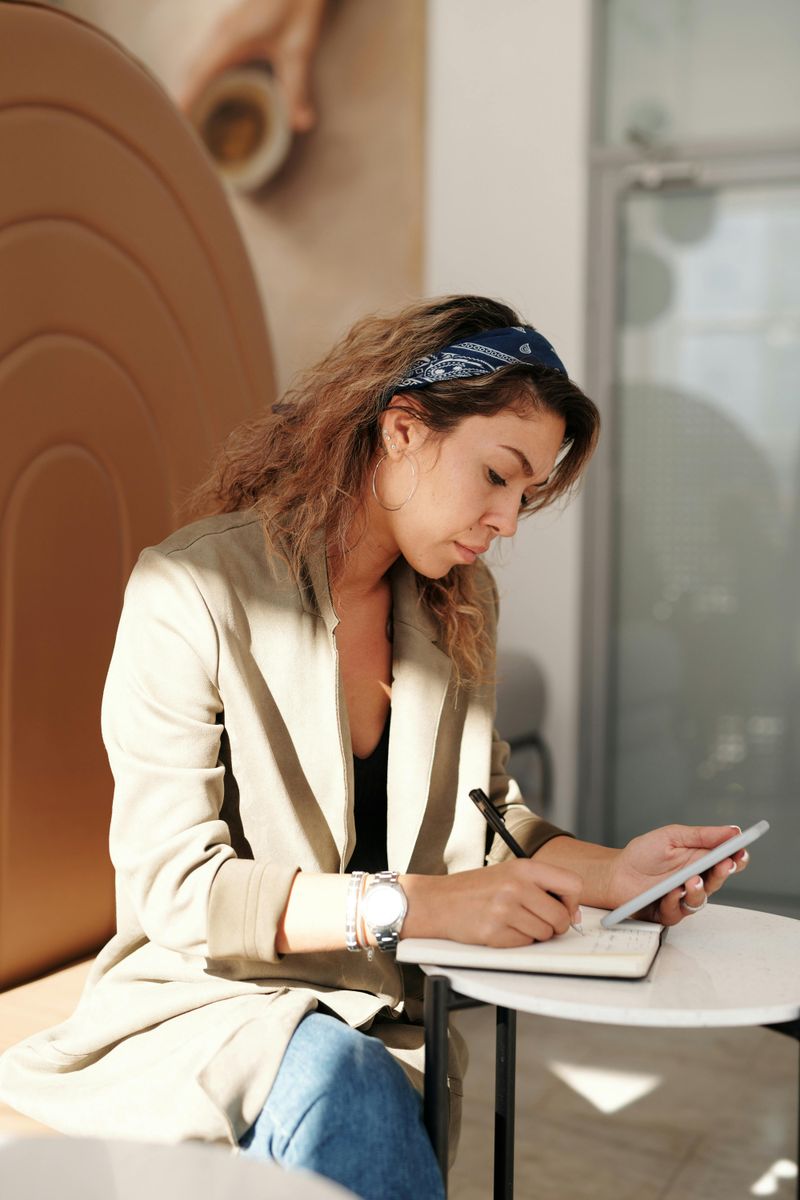
Before instant bank alerts, financial zen was achieved with a ledger, a pencil, and meticulous patience. You’d record every transaction like a courtroom stenographer, then reconcile with a monthly statement. Finding a five-dollar discrepancy felt like solving a tiny crime.
Math errors hid in plain sight, so you double-checked columns and avoided smudging the totals. People took pride in neat handwriting and straight lines, as if the bank would grade your penmanship. Crossing out a mistake was a small tragedy; using white-out, a scandal.
The ritual built discipline you can still feel in your bones. Today’s apps animate your spending; yesterday’s notebook made it visceral. There’s a satisfying permanence to pencil on paper—a reminder that money is real, math matters, and calm lives in tidy columns.
5. Using Paper Maps or MapQuest Printouts
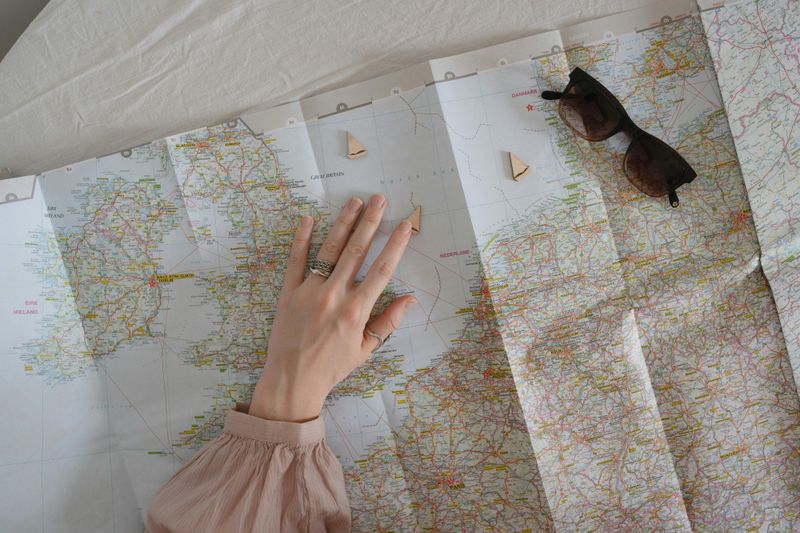
Navigating the world once required origami-level folding skills and trust in a crinkly oracle. You’d highlight routes in neon, then juggle pages as exit numbers blurred past. If you missed a turn, a chorus of “We’ll figure it out” filled the car.
MapQuest directions lived on the passenger’s lap, featuring ominous lines like “Slight right onto unnamed road.” The navigator wielded authority, even if they read upside down. Roundabouts turned into improv theater, complete with heated debates and triumphant fist pumps.
Getting lost wasn’t a failure—just bonus sightseeing. You learned cardinal directions, the logic of grids, and the smell of glove-box paper. Best of all, arriving somewhere felt earned, a collaborative victory sealed with snacks and a pen checkmark on step fourteen.
6. Recording Songs Off the Radio
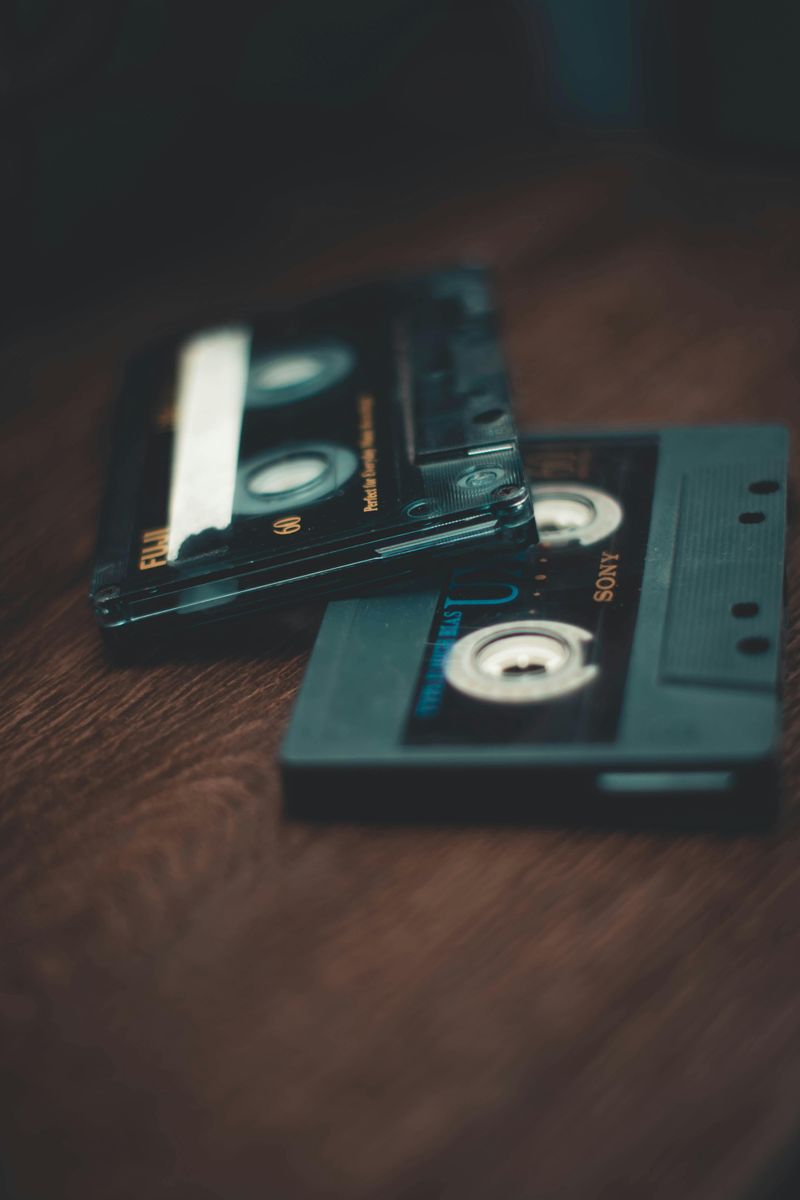
Mastering the art required vigilance and reflexes sharper than any gamer’s. You hovered over the dual-cassette deck, finger poised on “record,” hoping the DJ wouldn’t talk over the intro. When they did, you accepted the faint voice as part of the song’s DNA.
Mixtapes grew from patience and timing, riding the wave of chart countdowns. You learned to recognize a track’s first drum hit like a bat hears echoes. Bloopers, static, and station IDs became oddly charming flourishes.
There was pride in curating hits without spending a cent. You labeled the cassette carefully, adding doodles and hearts around standout tracks. And when a clean recording finally landed, you celebrated by rewinding to the exact millisecond—because perfection lived in the margins.
7. Calling a Friend’s House Phone

Social courage was forged by dialing and bracing for an adult to answer. You rehearsed the script—“Hi, is Ashley there?”—and prayed you didn’t sound weird. Background TV noise and clattering dishes painted the soundtrack of every suburban evening.
Etiquette mattered: introduce yourself, speak clearly, and avoid tying up the line. Corded phones turned kitchens into conference rooms, with parents passing receivers like batons. If someone picked up another extension, you got accidental surveillance as a bonus.
Every ring felt dramatic, every busy signal a cliffhanger. Leaving a message on an answering machine? Pure stage fright. Yet once you made contact, conversations stretched for hours, spiraling into laughter and secrets while the cord twisted into a perfect helix.
8. Rolling Down Car Windows by Hand

Arm strength met ventilation in a ritual that felt oddly athletic. You’d crank the handle with a few firm rotations, then fine-tune for the ideal breeze. Backseat negotiations began: “Halfway, please!” “No, three turns!” Democracy lived in the door panel.
Rainstorms turned into frantic rolling marathons at stoplights. Drivers learned to multitask, steering with a knee while cranking like a ship’s helmsman. Broken handles meant creative solutions involving pliers and optimism.
There was tactile satisfaction in feeling gears bite and glass slide. No mysterious electronic failure—just mechanics you could understand. On summer nights, the air whooshed in like freedom, and the car smelled like road, vinyl, and possibility.
9. Blowing into Game Cartridges to Make Them Work

Dust was the sworn enemy, and breath was the magic spell. You’d eject the cartridge, deliver a ceremonial puff, and slam it back in with hopeful determination. Friends gathered around like acolytes awaiting a miracle boot screen.
Science says moisture can corrode contacts; experience says it absolutely worked. You tried every variation: gentle exhale, gale-force hurricane, even the strategic sleeve wipe. If the screen still glitched, a precise wiggle often coaxed life from the pixels.
Success arrived as a triumphant chime, proving faith and superstition could coexist. The ritual bonded players across basements and bedrooms, creating a mythology stronger than any instruction manual. Today’s downloads never need breath—but they’ll never feel as heroic, either.
10. Writing in Cursive
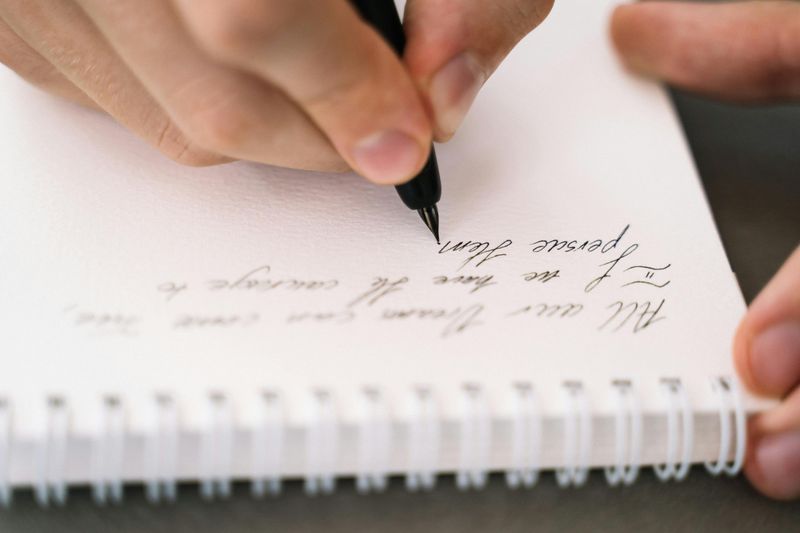
Classrooms once echoed with the scratch of pencils practicing loops and tails. You memorized capital Q’s that looked suspiciously like numbers and perfected the elegant swoop of a lowercase f. Teachers graded the tilt of your letters like art critics.
Pen pals and birthday cards became performance pieces, all flourishes and confidence. Signatures evolved into personal logos you could replicate blindfolded. Ink smudges betrayed left-handed heroes who battled the page and still made it pretty.
Typing is fast, but cursive carries charisma. Handwritten notes still land with extra weight, like they traveled farther to get to you. Even if you’re rusty, muscle memory lives in your wrist, ready to unspool a sentence like ribbon.
11. Using a Payphone

Urban survival once meant keeping quarters in your pocket or a calling card tucked behind your ID. You scanned for the nearest booth, hoping the receiver wasn’t sticky and the dial tone still sang. Privacy was a fantasy; ambient city noise turned every call into a public performance.
Emergency messages were short, strategic, and memorized. Collect calls demanded a lightning-fast name blurted during the prompt. If rain hit, you huddled beneath the hood like a noir detective.
The metal keypad felt industrial, the coins clanked with comforting certainty, and time limits forced brevity. You ended conversations decisively, with no spiral into endless goodbyes. Somehow, the world kept turning—proof that connection didn’t require apps, just grit and spare change.
12. Adjusting TV Antennas (Rabbit Ears)

Picture perfection was a dance between hope and aluminum rods. You’d extend the antenna, then angle it toward some mysterious broadcast nirvana. Suddenly, the picture sharpened—until you dared to sit down and chaos returned.
One hand in the air turned you into a human signal booster, frozen like living room sculpture. Foil hats for antennas weren’t jokes; they were engineering. Channels changed with a thunk, and snow vanished with an oddly satisfying zap.
Family teamwork looked like this: someone tweaks, someone squints, someone shouts “Right there!” Compromise was the lesson; community, the reward. Streaming is slick, but nothing beats the triumph of conquering static with sheer determination.
13. Using the Dewey Decimal System

Libraries transformed into labyrinths you navigated with numbers instead of breadcrumbs. You decoded call numbers like coordinates, marching from 500s to 510.92 with detective swagger. Card catalogs—wooden drawers of whispered wisdom—clicked open to reveal tidy typewritten clues.
Stacks turned into treasure hunts where subjects neighbored like quirky roommates. Serendipity lived on adjacent shelves; one book led to three more you didn’t know you needed. Whispered victories felt grander than algorithmic recommendations.
Mastery meant wielding decimals with confidence and respecting the quiet as sacred. The system taught order, curiosity, and humility before vastness. Even now, walking those aisles feels like entering a temple where knowledge sits patiently, waiting to be found.
14. Developing Film

Photography once demanded commitment and faith in your own eye. You snapped sparingly, then dropped off a mysterious roll, trusting chemistry to reveal your memories. Waiting a week felt like counting down to a tiny holiday.
Disposable cameras clicked with tactile certainty—no previews, just hope. When the envelope finally arrived, you flipped through prints like tarot cards, interpreting blurs and red-eye as cosmic jokes. Doubles meant sharing, framing, or wallpapering your locker.
Imperfections gave photos personality—light leaks, soft focus, accidental thumbs. You learned to treasure the few perfect shots and laugh at the rest. These days, filters fake the look; back then, serendipity did the editing for you.

Comments
Loading…